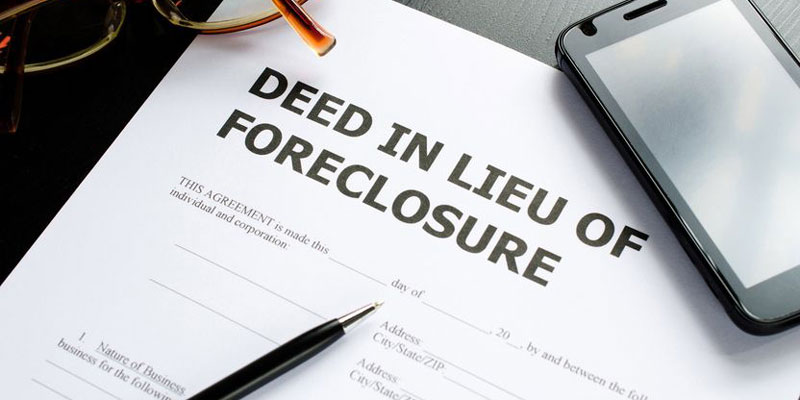Planning for the future of your assets and ensuring that your loved ones are taken care of after you pass away is a crucial aspect of financial management. Estate planning and wills are two commonly used terms in this context, but they have distinct meanings and purposes. In this article, we will provide an overview of estate planning, explain what a will is and how it works within estate planning, highlight the differences between an estate plan and a will, discuss the benefits of having an estate plan, and provide strategies for creating an effective estate plan.
Overview of Estate Planning:
Estate planning involves the systematic and strategic arrangement of your assets and affairs to ensure their smooth transition and management after your passing. It encompasses a comprehensive evaluation of your financial situation, including assets, debts, investments, and insurance policies, as well as considering your personal wishes and desires for the distribution of your assets.
What is a Will and How Does it Work in Estate Planning?
A will, also known as a last will and testament, is a legal document that outlines your wishes regarding the distribution of your assets after your death. It allows you to designate beneficiaries for specific assets, appoint an executor to manage your estate, and potentially name a guardian for any minor children. A will only becomes effective upon your death, and it goes through a probate process, which is a court-supervised procedure to validate the will and distribute assets according to its instructions.
The Difference Between an Estate Plan and a Will:
While a will is a crucial component of estate planning, it is important to understand that estate planning is a broader concept that encompasses more than just a will. An estate plan includes various legal documents, strategies, and considerations to manage your assets during your lifetime, plan for incapacity, minimize taxes, protect your assets, and ensure a smooth transfer of wealth to your beneficiaries upon your death. In addition to a will, an estate plan may include documents such as trusts, powers of attorney, advance healthcare directives, and beneficiary designations.
Benefits of Having an Estate Plan vs. Just a Will:
Having an estate plan offers several advantages over having just a will. Here are some key benefits:
- Avoiding Probate: While a will goes through the probate process, certain estate planning strategies, such as trusts, can help bypass probate and facilitate a faster and more private distribution of assets.
- Incapacity Planning: An estate plan can include documents such as powers of attorney and advance healthcare directives, which designate individuals to make financial and medical decisions on your behalf if you become incapacitated.
- Tax Efficiency: Through estate planning, you can implement strategies to minimize estate taxes, gift taxes, and income taxes, potentially preserving more wealth for your beneficiaries.
- Asset Protection: Proper estate planning can help protect your asset from creditors, lawsuits, and other potential threats, ensuring that they are preserved for the intended beneficiaries.
- Special Needs Planning: If you have a loved one with special needs, an estate plan can include provisions to protect their eligibility for government benefits while providing for their financial well-being.
Strategies for Creating an Effective Estate Plan:

Creating an effective estate plan requires careful consideration and guidance from legal and financial professionals. Here are some strategies to keep in mind:
- Define Your Goals: Clarify your objectives and priorities for your estate plan. Consider factors such as asset distribution, healthcare preferences, charitable giving, and guardianship of minor children.
- Seek Professional Assistance: Consult an estate planning attorney and a financial advisor who specialize in estate planning. They can guide you through the process, ensure your documents comply with applicable laws, and tailor the plan to your specific needs.
- Consider Trusts: Explore the use of trusts in your estate plan. Trusts can provide greater control, privacy, and flexibility in asset distribution, minimize estate taxes, and protect assets from probate and creditors.
- Update Beneficiary Designations: Review and update beneficiary designations on financial accounts, retirement plans, and life insurance policies to ensure they align with your estate plan. Beneficiary designations generally supersede instructions in a will.
- Communicate with Your Loved Ones: Openly discuss your estate plan with your family members and loved ones. Clear communication can help avoid misunderstandings and conflicts in the future.
Common Mistakes to Avoid when Creating an Estate Plan or Writing a Will:
When creating an estate plan or writing a will, it's important to avoid common mistakes that can lead to unintended consequences. Here are a few mistakes to watch out for:
- DIY Estate Planning: While DIY approaches may seem cost-effective, they can result in errors, legal complications, and inefficient asset distribution. It's best to work with professionals who can provide personalized guidance.
- Failure to Update: Life circumstances change, and it's essential to regularly review and update your estate plan to reflect significant life events, such as marriages, divorces, births, deaths, and changes in financial status.
- Lack of Contingency Planning: Consider alternative scenarios and include contingency plans in your estate plan. This can help address situations where beneficiaries or executors are unable or unwilling to fulfill their roles.
- Neglecting Non-Probate Assets: Remember that certain assets, such as retirement accounts, life insurance policies, and jointly owned property, may pass directly to designated beneficiaries outside of probate. Ensure these assets align with your overall estate plan.
Final Considerations for Establishing Your Legacy Through Properly Planned Assets and Wills:

Establishing your legacy through properly planned assets and wills requires thoughtful consideration of the following:
- Philanthropic Goals: If charitable giving is part of your legacy plan, explore options such as establishing a charitable foundation, creating a donor-advised fund, or including charitable bequests in your will.
- Digital Assets: Consider how you want your digital assets, such as social media accounts, online financial accounts, and digital media, to be managed or transferred after your death. Some jurisdictions have specific laws regarding digital assets.
- Family Dynamics: Anticipate and address potential family conflicts or challenges that may arise during the estate settlement process. Open communication, clarity, and fairness can help mitigate conflicts among beneficiaries.
- Review Periodically: Regularly review and update your estate plan to ensure it remains aligned with your goals, legal requirements, and changes in your circumstances or the tax laws.
Conclusion:
Estate planning and wills play integral roles in managing your assets and securing the financial well-being of your loved ones. While a will is a vital document, estate planning goes beyond a simple will and involves a comprehensive approach to manage your assets during your lifetime, plan for incapacity, minimize taxes, and protect your assets. By understanding the differences between an estate plan and a will, recognizing the benefits of having an estate plan, implementing effective strategies, avoiding common mistakes, and considering final considerations, you can establish your legacy and provide for your family's future with confidence.
FAQs:
What is the main difference between an estate plan and a will?
An estate plan is a comprehensive strategy that encompasses various legal documents and considerations to manage your assets during your lifetime and plan for their distribution after your death. A will, on the other hand, is a specific legal document that outlines your wishes regarding asset distribution upon your death.
Can I create an estate plan without a will?
While it's possible to have an estate plan without a will, a will is a fundamental component of most estate plans. A will allows you to specify your wishes for asset distribution and appoint an executor to carry out your instructions.




